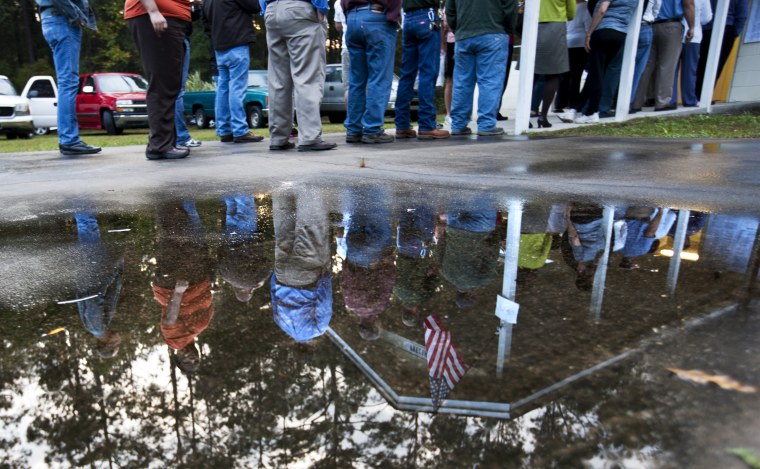As he prepares to launch his second voter purge in less than two years, Florida Gov. Rick Scott’s administration is finally admitting that his first purge effort was less than perfect.
“I accept responsibility for the effort,” Scott’s Secretary of State Ken Detzner, told the Miami Herald/Tampa Bay Times. “It could have been better. It should have been better.”
Detzner, Scott’s top elections official, oversaw the much-maligned 2012 purge, which he defended as his “moral duty.” His latest remarks come as he tours the state trying to convince local elections officials and voters that the new purge effort won’t be quite so troublesome. During that effort to purge the voter rolls, an initial list of 182,000 potential non-citizens was whittled down to 2,600 and then down to 198, but still wasn’t pursued in some areas where local officials were distrustful of the data.
Dozens of elections supervisors across the state refused to follow through with that purge, including Leon County supervisor of elections Ion Sancho, one of the purge’s biggest critics refusing to apply the flawed list to his county, and claiming the move was a “partisan endeavor” from the Scott administration.
Scott has repeatedly defended both the 2012 and new purge efforts, arguing he is trying to protect the integrity of the voter rolls. He gave the purge effort a new name “Project Integrity,” and made changes to the process designed to help eliminate the many errors the 2012 purge lists had, but that hasn’t successfully convinced all local elections officials that the new effort will be better.
The Justice Department told the state to stop the purge effort last year, arguing that it violated the National Voter Registration Act, which says voter roll maintenance cannot occur in the 90-day period before an election. Scott announced he would resume that effort to clean the voter rolls in August after the Supreme Court’s ruling gutting the Voting Rights Act cleared the way for him to do so without federal interference.
The new purge will rely heavily on information from the federally-maintained Systematic Alien Verification for Entitlements database, known as SAVE, but there are questions as to how up-to-date that data may be. State officials will be letting local officials make their own determinations on citizenship too, which could lead to an unevenly application of the rules across counties.
“I don’t have anyone on my staff who is an immigration specialist,” Hillsborough County’s elections supervisor Craig Latimer said, concerned over how he will sort through all the information. “If we have any questions, I don’t know who we’re going to take it to.”
